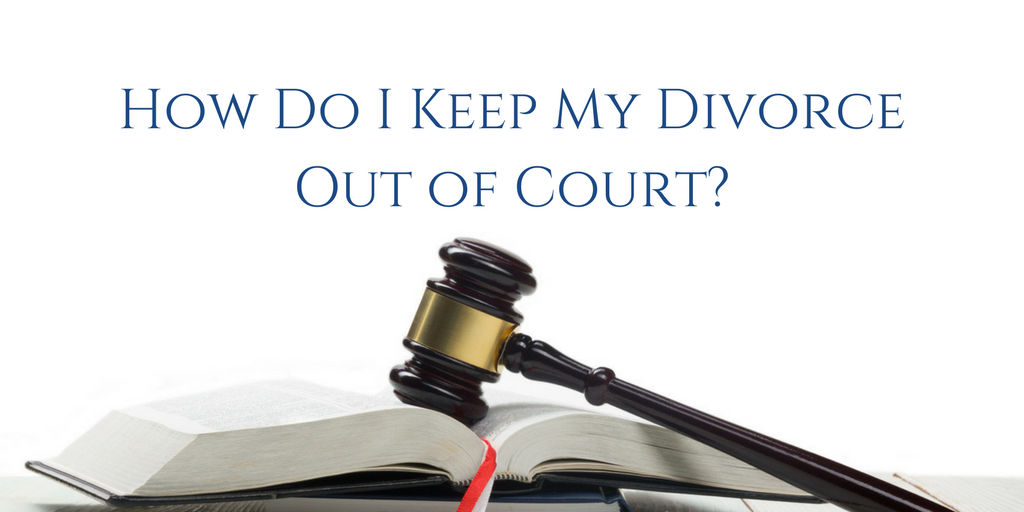Is there a way to achieve a satisfying divorce while staying out of a courtroom? More and more individuals pursuing a dissolution of their marriage are looking into courtroom-free alternatives. Find out why this trend is popular and how to keep your divorce out of court.
Alternatives to traditional divorce, such as mediation and collaborative law, offer numerous advantages over going to court. These include:
- Maintaining control. Rather than allowing a stranger (the judge) to ultimately decide your future and the future of your children, you and your spouse will be directly involved in the decisions that will have a long-term impact on your family.
- Protecting your privacy. Your personal matters are not part of the open court proceedings or open to the public.
- A quicker and less expensive process. There is a significant reduction in time, need, and amount of legal fees paid, which allows you and your spouse to move forward more quickly with additional funds for the future.
- Greater flexibility. If you remain in the courtroom realm, the judge’s discretion in deciding the issues in your case is constrained by the limitations contained in Florida statutes and Florida case law. By using non-litigation for divorce, you are not constrained by the boundaries of Florida case law and statutes. If you can craft your own solution, you have more room to be creative in formulating what best fits your needs and circumstances, as well as those of your children.
- Being forward thinking. Courts are more focused on past events and creating solutions that work for the present. When you and your spouse control the process, you can better plan for future expectations.
Schedule a Personalized Divorce Assessment with an Attorney Now!
So how do you effectively keep your divorce out of court?
Be realistic. It is essential to understand the limitations to courtroom proceedings. While you may think your argument for your case and your objectives are clear-cut and convincing, it ultimately is the judge’s decision when you go to court. The judge’s decision can be impacted by any number of things, which you may consider fair and, at times, unfair. Be aware that the court’s decision may not be in your favor and take that into account when deciding which divorce option to follow.
Be willing to compromise. While, for some, compromise sounds like conceding defeat on issues, the reality is that courtroom situations often result in a battle where no one emerges the winner. Other alternatives, on the other hand, can generate a win-win solution as long as the two parties are willing to work together.
Consider alternative solutions.
- Mediation: In mediation, you and your spouse work with a neutral third party (the mediator) to resolve issues related to distribution of property, timesharing (child custody/ child visitation), alimony, child support, distribution of assets and liabilities, and other issues. The mediator helps couples stay on track and focused on the issues in order to reach agreements.
- Collaborative divorce: In a collaborative divorce, each party hires their own attorney and both parties retain the services of a neutral financial professional and a collaborative facilitator (who usually is a mental health professional). They each meet with their attorney privately to communicate their goals and their needs. Then the parties, their attorneys, the neutral financial professional, and the collaborative facilitator come together in a series of meetings to exchange information and create options to meet the needs and the goals of the parties until an agreement on the issues of the divorce has been reached. These private collaborative meetings occur on a regular basis. Most collaborative divorce cases are concluded within four to six meetings. The goal is to settle the case out of court.
Find a Board Certified Family and Marital Law attorney. The best way to successfully navigate a courtroom-free divorce is to partner with someone who is experienced, trained, and educated in non-litigation divorce options. A Board Certified Family and Marital Law attorney trained in the collaborative process and/or collaborative divorce attorney will be able to educate you on all the options available to you and help you proceed on the one you ultimately select.
Your divorce does not have to end up in a courtroom. Investigate other options that will free you from the anxiety, costs and drama associated with traditional litigation based divorce.
Board Certified Marital and Family Law Attorney Charles D. Jamieson understands that divorce is an extremely sensitive and important issue. Thanks to extensive experience and a focus on open communication, Attorney Jamieson adeptly addresses the complex issues surrounding divorce while delivering excellent personal service. To discuss divorce options, please contact The Law Firm of Charles D. Jamieson, P.A. online or call 561-478-0312 to schedule a consultation.
Sources: Mediate.com, Findlaw



